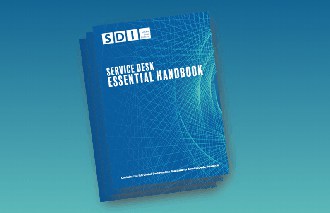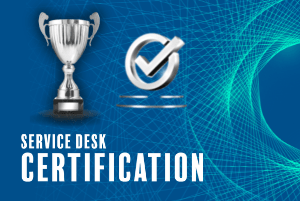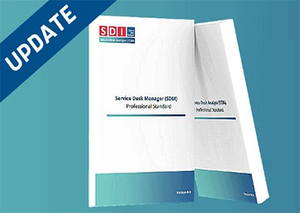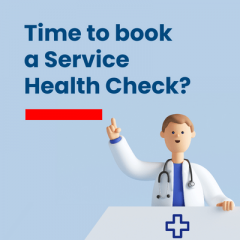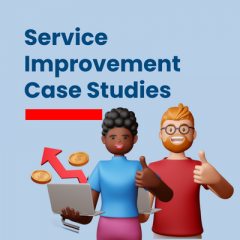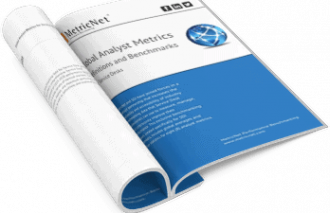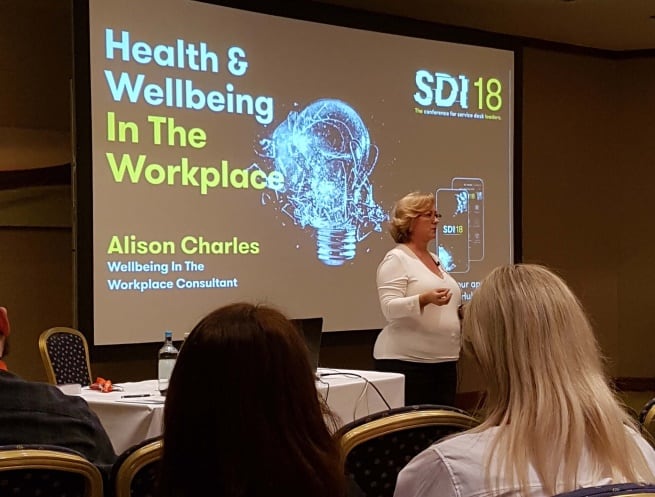
Wellbeing in the workplace is a hot topic at the moment, but do we really understand what it is all about? In a work environment it’s called Wellbeing – on the news they are talking about Mental Health. So what does it mean and is there a difference?
Any role that is customer facing is stressful. The Service Desk Institute realise how difficult it can be for Service Desk staff to know how to cope with stress and how critical it is to have the right support in place.
Alison Charles, Wellbeing in the Workplace Consultant, joined us at SDI18 – The Conference for Service Desk Leaders, as one of the leading breakout speakers to discuss the importance of wellbeing in the workplace.
Alison has provided us with some tips on how to deal with workplace stress from both a management and employee standpoint.
Is wellbeing just a management issue?
In the dictionary wellbeing is described as “the state of being comfortable, healthy, or happy”. Mental Health is described as “a person’s condition with regard to their psychological and emotional well-being”. So basically it is all about a person being well.
We all have responsibility for ourselves so our Wellbeing is our responsibility. If work is stressful, is it then a management issue? To avoid work-related stress, wellbeing initiatives should ideally originate from the boardroom, in order to bring about positive and lasting change.
Having the right support in place, should staff need it, is key. Depending on the nature and size of the business this can vary. Very small companies may manage everything through Human Resources. Medium to large companies may have Work Place Assistance programmes in place, medical insurance, or an on-site Medical team. They may also have Wellbeing Strategies and training to name but a few. However, a recent study by the Institute of Directors (IOD) found that less than 5% of companies have a wellbeing strategy or training programme. Most importantly the support must be fit for purpose for the organisation and staff know where to go for help.
What if one of your team members is struggling with stress?
If you are the team manager, it is definitely part of the job description to look after your staff. Unfortunately, sometimes managers are too busy doing the day job to notice the early signs of something being amiss.
If you work as part of a team and one of your colleagues is stressed it can put extra pressure on the team. Particularly if that person is regularly off sick and others have to pick up the slack. Team members are often too buried in their own work or they feel ill at ease to approach the person and offer a sympathetic ear. As part of a team, the culture should be to support each other. That is what a high performing team does. Each person is very aware of their role and how they contribute to the success of the team. They know that each member has to be operating to the best of their ability for the whole team to be operating at their best. They support each other to achieve this.
So no, it is not just a management issue, it is everyone’s responsibility to look after themselves and to look after each other.
What can you do for your staff?
Some simple strategies that work
Regardless of what the company has in place, a few simple things can make a drastic difference to staff.
- Making sure that staff have the opportunity to take a break when needed, get out and get some fresh air, or time to talk with colleagues and let off steam.
- Rotate staff on service desks to other roles occasionally to give them a break.
- Arrange team time so people get to know colleagues. Connected teams spot signs of stress in each other a lot easier and feel able to approach the person and have a casual chat.
- Frequent dialog between managers and staff via an open door that is truly open.
- If shift work is required, find out from the team what the optimum shift patterns might be. This can help ease travel stress and help with family responsibilities.
Having some simple strategies in place, like the above, can help ease workplace stress in a high stress environment and aid productivity.
What you can do for yourself as an employee
What are the 5 Pillars of Wellbeing?
I particularly like the phraseology of Dr. Rangan Chaterjee in his book “The 4 Pillar Plan. How to relax, eat, move and sleep. Your way to a longer, healthier life”. The art of wellbeing or ‘being well’ is to have all of these four elements in balance. The one extra I would add is mindset.
As well as the stress of dealing with people we live in an age where we are overwhelmed by data and deadlines and we are on fully connected overdrive. How many of you get up in the morning and the first thing you do is reach for your phone, check your social media and your emails?
Our adrenal glands get over strained. The adrenal glands secrete adrenaline to help your body respond to stress, but they also regulate many vital processes in your body, such as metabolism. Constant stress is like putting your foot on the accelerator all the time, at some point you are going to run out of petrol. It is also like overloading a PC with different processes.
It is absolutely critical to give the body a chance to reset and engage the parasympathetic nervous system, which is the equivalent of putting your foot on the brake, or if you think more in PC terms, a reboot.
Here are some ways to consider that might help you look after your wellbeing. Always check with your GP or other suitable qualified medical professional about a lifestyle change or before embarking on exercise.

Relax
Every person is different so everyone will find different activities relaxing. The important thing is that you do take some time for self-care. This allows the body to do that essential reboot. A morning meditation session, where everyone knows not to disturb you, might be your relaxation. Maybe it’s that hot bath with a good book, last thing at night. Perhaps you have a particular hobby or interest that is your “YOU” time. If not, learning something new is a great stress buster and has numerous other benefits for the brain too.
If you are at work and you have a particularly difficult customer, then how about resetting right after the call. I personally love the Hayo’u Method. Try this reset ritual:
If you can’t leave your desk then some slow deep breaths can really help. Put your elbows on the desk and cover your eyes with your hands and block out the light. Leave a gap between your hands and eyeballs, like a cup. Breathe in 4 counts. Hold 4 counts. Out 4 counts. Hold 4 counts. Repeat. If 4 does not suit then find your own rhythm.
Eat
Eating a healthy diet is critical to overall wellbeing. However, I am not about to prescribe a particular eating regime. Your GP or a qualified nutritionist is the best person to approach. They can help you find what works best for your lifestyle and body type.
The tendency, when we are stressed, tired and busy, is to choose convenience foods, alcohol and sugary foods. All of these actually put more stress on the adrenals and therefore make the body more stressed. Make sensible choices but be kind to yourself, an occasional reward is also good for you. It keeps you motivated and keeps levels of enjoyment high.
Move
Exercise is a great way to relax and de-stress so it might be your choice of relaxation too. It releases endorphins, which gives a feeling of wellbeing. The key is to find out what you enjoy. If it is fun then you will keep doing it. Whether it is pumping iron at the gym or taking a class. Following a High Intensity Interval Training (HIIT) programme, running with a group in the park or doing a dance class, it all helps. If that all sound a bit energetic then slower exercises are also great. Try Tai Chi, Pilates or Yoga. There are some great online resources if you don’t want to go to a gym. If you are embarking on exercise for the first time do check with your GP.
Here are a couple of my favourites. Maybe they will inspire you too:
If you don’t have much time then there is a lot of research about short workouts with maximum benefits. Watch “Trust me I’m a Doctor” on BBC for some ideas.
Sleep
A good nights sleep is so critical for feeling energetic and healthy. Stress can mean you spend the night lying awake trying to sleep and watching the minutes tick by, then waking up in the morning feeling tired and grumpy. If you suffer the occasional night of bad sleep this might help. If it is more prolonged then do have a chat with a qualified medical professional.
Choose your preferred relaxation method to help you switch off. Leave any phones, tablets, TV’s off and preferably out of the room altogether. Even reading can hinder more than help. If you do find yourself running through things then get up and write them all down and then go back to bed. Getting them on paper can help clear the mind. If you wake up several times in the night, then try going to bed slightly later and getting up slightly earlier. It can help reset the body clock.
Mindset
Above all be kind to yourself. Think about how you would talk to a loved one and treat yourself with the same respect. Keeping a journal or diary can help uncover unhelpful behaviour. Half the battle is recognising it, then you can do something to change it. Look for times when you are stressed and you have no control of the situation. Perhaps you are driving and there is a traffic jam. Can you change it? “No”. What you can do is take the time to do some deep breathing exercises, listen to your favourite music and enjoy the scenery. Well that feels so much better, right? Keeping a journal of instances like that can help you notice patterns and stress triggers. A journal can help you make changes that will lead to a more resilient you. Greater resilience means greater capacity to cope with stress and with change. It means you are more likely to do something that you are fearful of and try it anyway. This in turn builds confidence, self-esteem and resilience. It directly impacts your ability to feeling and being well.
Now over to you
What changes are you going to make to improve your own wellbeing? What are your goals? Go write them down. Now create an action plan made up of small steps to achieve your goals. Small steps lead to constant wins and are the most sustainable. Remember your wellbeing, your way. Be Well!
About the author

Alison Charles is a successful Wellbeing in the Workplace consultant with vast experience gained in both the Army Intelligence Corp and large corporate companies. She has delivered organisational development programmes across the globe. She knows a thing or two about high stress environments and how to thrive in them. She specialises in delivering Wellbeing Programmes to corporate companies, helping them to thrive and prosper by putting happy staff at the centre of their strategy.
To find out more about Alison go to https://alisoncharles.co.uk/
